|
It was a little brutal to be honest. In September we performed two scratch performances of Little Cuts, our work in progress, that we aimed to take into schools, which explores self harm, where we would be combining the play with a workshop which would allow us to give students a chance to explore the difficult themes raised by the piece Tuesday |
| | At times it felt like some of the feedback we were getting was harsh and that our aim had been misunderstood. The general criticism went something like this..... "Here is my job title. I am providing this to prove that what I say carries weight because I am a professional. I am marking my territory. I am a good and kind person because I work with the mentally ill. What you are doing and saying is threatening to me because I like to feel in control of the situation when I work with the mentally ill. I am doing help and kindness to them and they should be grateful. I think you should not take alarming subject matter into schools as this has not been done before and it is alarming to me." Perhaps they didn't appreciate the fact that we work from lived experience and therefore are experts in the subject matter' Apparently there are many professional actors who wouldn't even try to receive feedback face to face like that. It is a difficult thing to do. We got dire warnings, that we believe came more from the speakers' fears than their desire to help us make a better piece. The helpful feedback about pacing and technique? That was expected and we are very grateful that people took the time and effort to come and see us. It was, we thought, clearly spelled out that the work was "in progress" and that the workshop that we would give in schools after the performance would be ready to address questions and issues raised. But it feels like some "professionals" were too threatened by us and our message to want others to see it. We think practically everybody should see Little Cuts. Show us someone working in Mental Health who wouldn't benefit from the insights this piece gives. Show us a teacher who knows so much about self harm and its manifestations that Little Cuts has nothing for them. Show us an adolescent who self harms who isn't already struggling with the feelings of either isolation, shame, confusion or helplessness that we're trying to address. Show us an adolescent, who doesn't self harm, who is already so well informed that they adequately understand what those who do self harm are going through, and how to help. We're not suggesting that mental illness always equates to self harm but please consider the following. People with current mental health problems are 20 times more likely to report having harmed themselves. 1 in 4 of the population will experience some kind of mental health problem in the course on any given year. In children (between the age of one and fifteen) 1 in 10 has a "mental health disorder". 1 in 5 will experience some kind of mental health problem in the course of any given year. 1 in 10 at any time, will be experiencing mental health problems. Unsurprisingly, "rates of mental health problems among children increase as they reach adolescence". Assuming that we perform to a class of thirty, that means that, statistically, at least 3 students will be struggling on that day. We understand the urge to protect adolescents who have no experience of self harm, but we would argue that, realistically, there aren't as many of them as you would think and such ignorance is likely to be short lived, especially with internet access so ubiquitous. Surely it is better to try to reduce the stigma, open the discussion and begin to explore the alternatives, than to try to protect some ideal of innocence that, sadly, cannot last. In case you are wondering 'how many of them will have self harmed though?' According to one Guardian article, last year the Health Behaviour in School-Aged Children (HBSC) revealed that "of the 6,000 young people aged 11, 13 and 15 surveyed across England – up to one in five 15-year-olds say they self-harm." Admittedly, it was a difficult experience for us on a number of levels. It apparently led some to question the wisdom of subjecting "vulnerable adults" (ie. us) to such "robust" feedback. Yes, much as we'd like not to be, we are vulnerable adults. But we are not helpless. We have been through hell and we are damn well going to do everything in our power to prevent others doing so, and to help those who already are. We will fight the ignorance and stigma that has made our experiences so much worse. We raise the profile of mental health problems because the current awareness levels are absurd. A person is more likely to suffer from mental illness in this year than they are to experience the following in their lifetime:
Right now, 1 in 5 of us will have dandruff. 1 in 5 of us have arthritis. 1 in 11 children and 1 in 12 adults have asthma and 1 in 10 carry meningococcal bacteria (although only 1 in 33,333 will have meningitus in any given year). These are common, everyday afflictions that nobody is trying to deny. But any given person is more likely to experience mental illness this year than be currently coping with asthma, arthritis or dandruff. It's here. It's real. It's horrible and we are going to talk about it because the more you shut it away the more the sufferers suffer. We can't sit quietly and patiently and wait for overworked, underpaid NHS staff to come and tell us how to address the issues nicely. We're not going to talk quietly any more just because it makes the "sane" people more comfortable. We are going to shout and we are going to be heard. Further Reading ;) http://www.theguardian.com/commentisfree/2010/apr/24/one-in-four-mental-health-statistic Some very good points. Ours still stand. :p |
Photo's not taken during performance but on the days of the performance. Varied levels of costumes/make up reflect this. Terms and conditions apply, No, wait, ignore that last bit.
0 Comments
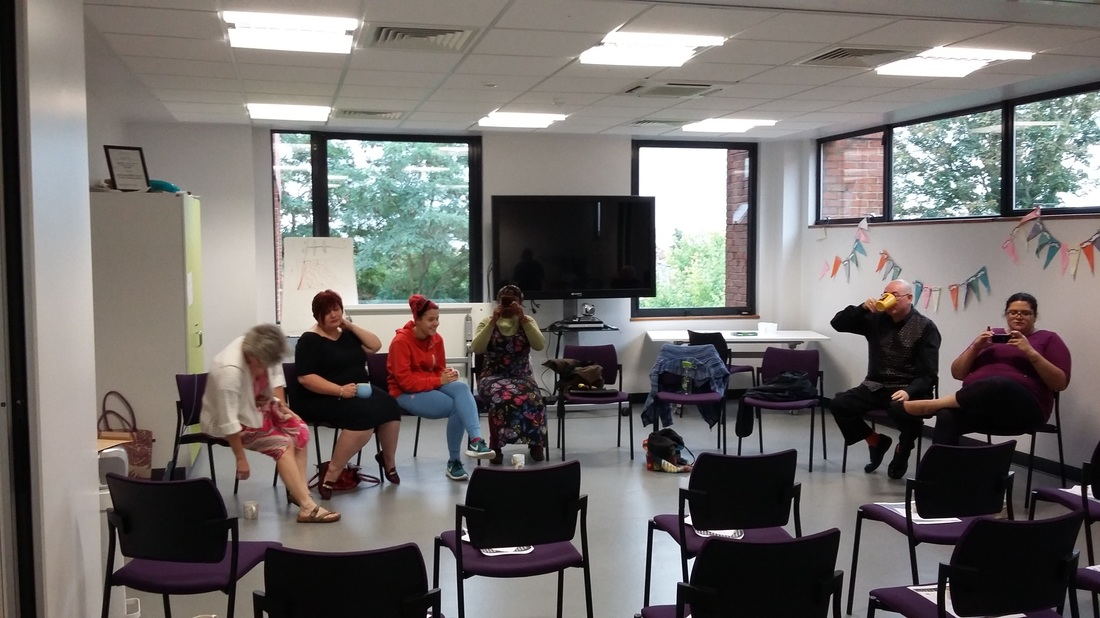
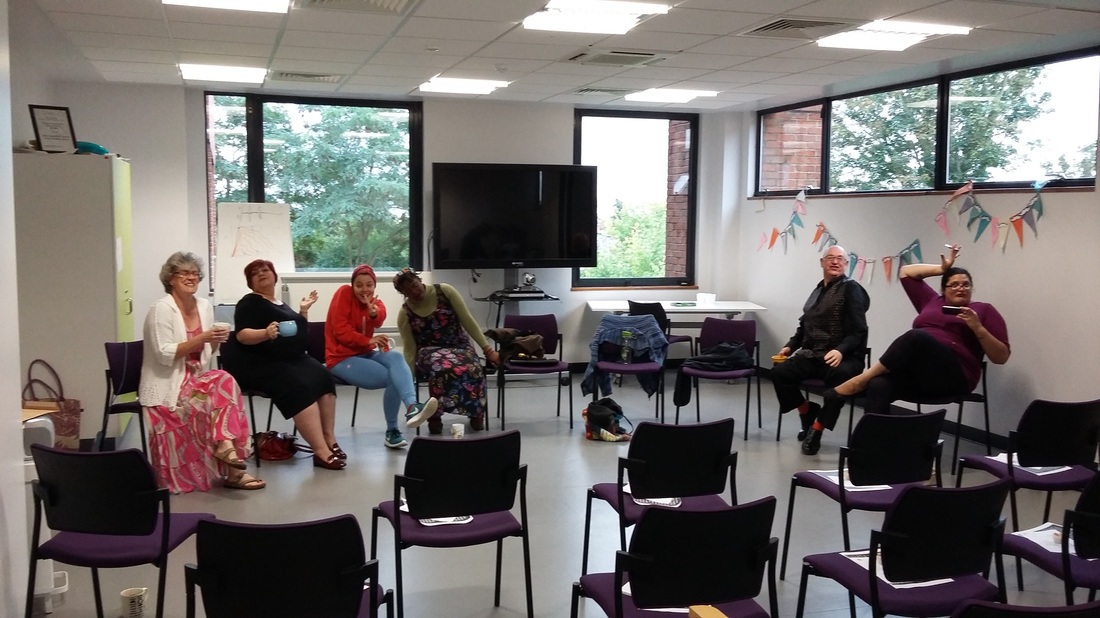
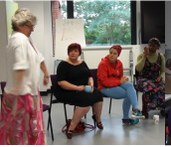

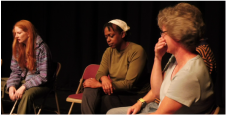
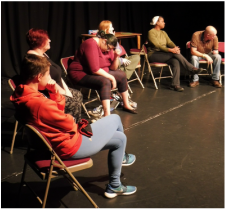
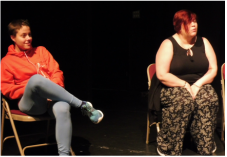
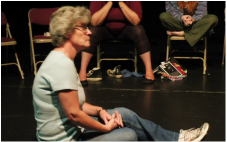
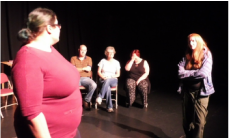

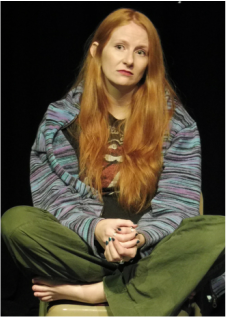
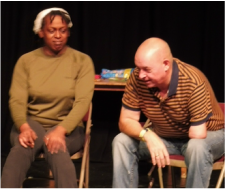
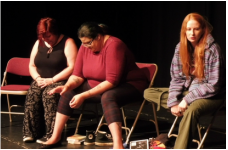
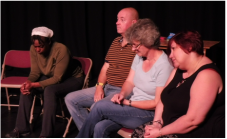
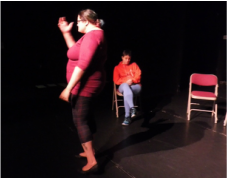
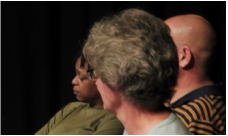
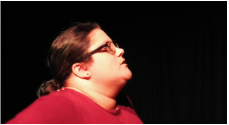
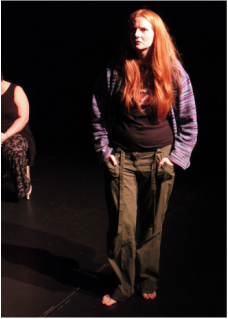
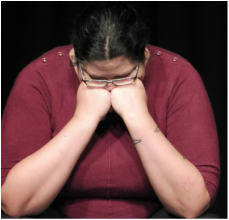
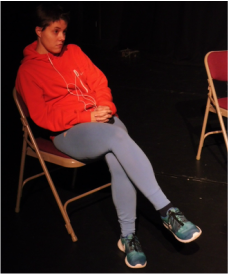
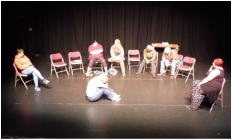
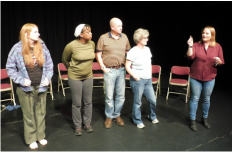
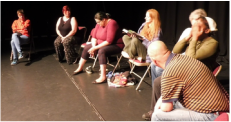
 RSS Feed
RSS Feed






